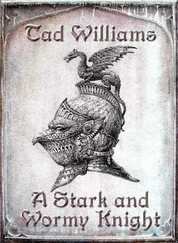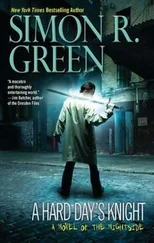“Oh please, love, Granny’d love having you there. We’ll be home by nine.”
“Yeah, okay. Oh, by the way, a letter came for you when I was leaving the house. I had to sign for it.” He hands her an envelope. There is a stamp from a solicitor’s office in the corner and she rips it open with a frown, wondering what fine it is she has forgotten to pay. She reads the letter twice then folds it up and puts it in her bag.

WINTER 2013
“Are you okay?” She nods, letting Robert’s hand rest on hers. He leaves it for as long as he can before taking it away to flick the indicator. They take the next left then slow to a crawl, dragging along until they find a space to park. He stops the car and Catherine releases her seat belt. Robert leaves his on and puts out his hand in gentle restraint.
“Are you sure you want to do this?”
“Yes,” she says, failing to conceal her irritation. It is the fourth time he has asked her. She opens the door and gets out.
The pane of glass in the front door is still broken, but this time Catherine uses the key to let herself in. It is hers now. The house and everything in it. She walks through, looking around, taking stock. It looks even more of a mess than when she was last here.
“Jesus,” Robert says.
She goes upstairs, looking over the banister at him standing in the middle of the sitting room, openmouthed with horror.
“Disgusting,” she hears him mutter. Yes it is. It is all disgusting. She opens the first door at the top of the stairs and looks into Stephen and Nancy Brigstocke’s bedroom: a double bed, dressing table, chest of drawers, wardrobe. The bed is still as it was the last time Stephen Brigstocke lay in it. Catherine will not be the one to drag his dirty sheets from the bed: she has organised others to come in and clear the house in a few days. She hears Robert’s feet on the stairs and within seconds his arm is around her, but she is restless and turns on her heel, marching on to the next room.
It is the only other bedroom. It must have been Jonathan’s. The walls are pale green and there are marks where pictures, or perhaps posters, have been ripped down — clean rectangles of missing things. She walks out, passing Robert, who hovers in the doorway, not knowing whether to go in or to follow her. She wishes now he hadn’t come. He looks like a husband whose wife is dragging him around a house he has no intention of buying while the owner looks on. She peers into the last door upstairs. A relic from the seventies. A bathroom with an avocado suite. She closes the door on it and goes back down. Robert follows.
They walk through the sitting room to the kitchen and look out at the garden. Since Catherine was last here someone has been at the plants. They have been cut back, hacked at, and their branches thrown, probably, onto the blackened hole in the middle of the lawn. It must have been quite a fire. He was the last thing to go onto it. The neighbours really complained about the smell then. They’d got on the phone to the council when they smelled that other, sickening smell. Catherine heard one of them on the local news.
“He didn’t make a sound,” the neighbour said. “He didn’t cry out. We didn’t hear a thing.” Otherwise of course they would have phoned an ambulance, not the council. And nobody had seen. They’d kept their windows shut after he’d started with his bonfires. Catherine had been watching television with her mother when they saw the story on the local London news. Her mother had tutted at the horror of it. An elderly man, living alone, burned to death. The police did not treat it as suspicious. A can of petrol was found near the body. She hadn’t realised it was Stephen Brigstocke until she met his solicitor and he told her what happened. He had made Catherine his sole beneficiary. This house and the flat in Fulham.
“Come on, darling, let’s go,” Robert says.
“No, you wait in the car if you like, I’m not ready yet.” But he won’t leave her and stays, opening kitchen cupboards and recoiling at the filth. He kicks at a broken cup which has been left where it fell on the greasy linoleum floor. She watches him wander back into the sitting room, his hand holding his coat away from the doorway, protecting it from picking up any dirt. He looks around for somewhere to sit but thinks better of it.
“Why don’t you wait in the car?” she says. “I’m happy to be on my own for a bit.” He looks at her, not understanding.
“I want you to. I’d like to be on my own. Please.”
“Are you sure?”
She nods.
“I’ve booked a table for lunch,” he says. “One thirty, Pier Luigi’s — I’m not going back to work this afternoon.” He is a thoughtful man. He is trying so hard. He leaves the house and she goes to the sitting room window and watches him get into the car. He takes out his phone and makes a call. It will be to work and she is glad because it means he is not thinking of her, and that gives her a breath of freedom. She has decided to leave Robert. She hasn’t told him yet. She has been thinking about it for weeks, wrestling with herself: stay or go. Now she is clear.
She needs to forgive, but she cannot. She cannot forgive him because she has watched him over the last few weeks manage the idea of her being raped so much more easily than he had managed the idea of her having an affair. Of course he was upset and angry: he felt impotent; he hadn’t been there to protect her. But it seems to Catherine that the new truth he was offered was easier for him to swallow than adultery. When she is at her most brutal, she thinks that, given the choice, he would rather she had suffered than to have enjoyed a burst of illicit pleasure. He was so hurt. He was so betrayed. He was so angry. He said his anger was because he felt he didn’t know her, that she became a stranger to him. Now he believes he has his old Catherine back. But he is wrong. She can never be that woman again. Robert’s Catherine was the one who couldn’t tell him the truth. The Catherine who preferred to strap the burden to her own back rather than share it with him. She was a self-sufficient, independent woman — a Catherine he could be proud of. Not his fault, more hers than his.
She remembers an evening soon after Nicholas came out of hospital when Robert grabbed her hands and said: “I’ll never forgive myself, Cath — how could I have believed you would have done that to us? I’ll never forgive myself….” And every word he said buried her love for him a little more. He cried, and she cried too but their tears were travelling in parallel lines. It was too late. They should have cried together years ago.
And there was anger mixed in Catherine’s tears. Robert had looked at those photographs of her being tortured and seen pleasure. He had missed the savagery and seen only lust. He had been too caught up in his own jealousy to see her. She could never forgive him for that. She thought when Jonathan died she would never have to tell anyone; she would never have to prove her innocence. Robert had made her feel that she had had to.
She opens the back door and goes out into the garden. It is drizzling, a soft grey damp that she breathes in as she walks across the patio, putting her hands in her pockets and looking down at the crooked grey slabs, wondering whether Stephen Brigstocke had laid them himself. She steps onto the grass, trimmed now into a lawn, and walks towards the blackened pit in its middle. A flutter of yellow catches her eye, a scrap of tape caught on a bush: a remnant from the short police investigation. A few charred remains have been dragged from the fire and then left there, relics which perhaps the police thought would give them some idea of what had happened. But they learnt little and concluded that it was an act of desperation by a lonely old man. By the time the police arrived, there was very little of him left and what there was was taken away for examination. She dips the toe of her shoe into the black pulpy mess. Robert had told her Stephen Brigstocke had blamed the book on his wife. Was that true? Did she write it? Perhaps, perhaps not. Does it matter? Not really, not anymore.
Читать дальше













